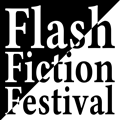
Prague Astronomical Clock

Anita Goveas
Several of the FlashBack editors will discuss various aspects of writing and publishing historical flash, and provide a few writing exercises so that participants can leave with ideas or even perhaps a rough draft of a historical flash fiction. There will be time for discussion during the session, so by all means, bring any questions you might have!

Sharon Telfer

Ingrid Jendrzejewski

Kellie Carle

Judi Walsh

Damhnait Monaghan
We publish one piece of historical flash, prose poetry, or hybrid each week. The story appears on a Monday and an accompanying interview with the writer appears on the Friday. We think the interview is a great way to expand that little bit more on the world created by each piece.

Emily Devane
Take us somewhere and somewhen we haven’t been before! Our published stories are listed in a timeline on our website and there is a massive gap between 12C BCE and 1577. We’d love to see more stories from outside Europe and the US. We set out to create a positive, inclusive space that celebrates strong writing and reflects a diverse range of time periods, locations, events, people, cultures, and social backgrounds.
We love traditional storytelling, but we’d also love to see more experimental or playful work. Hybrid pieces and prose poetry are very welcome, as are more unusual formats – if you have a historical flash in the form of a letter, diary entries, will, list, or some other non-traditional format, we’d love to take a look.
Also, more humour would be great. Yes, history can be grim, but we’re pretty sure people laughed in the olden days too!
In general, we’re interested in work that helps fill in some of the gaps in our history books and/or challenge assumptions about the past, and/or that questions and explores what historical short form writing can be.
Declining work is one of the parts of the job we hate most, and it’s not something we do lightly. However, with a limited number of slots per year, we often find ourselves having to make hard decisions. Here are some of the most common reasons we might pass on a piece.
It’s too long: Our word limit is 500 words. We allow a little leeway, but if it’s too long, it won’t be read.
It’s not ready: we see many stories that feel a few brave edits away from brilliance. Your chances of acceptance will increase exponentially if you edit and fine tune before you submit.
It isn’t historical: stories must ‘engage with the historical in some way’. We have turned down strong stories that don’t feel historical or could be set somewhere in the world today; just adding a quill pen to a story that could otherwise be set in almost any time isn’t likely to be a good fit. We like pieces where the historical context is intrinsic to the story in some way (even if it’s a very quiet, subtle way).
It’s been covered: Because we are a specialist magazine, with a limited number of available ‘slots’ we have to think carefully about the magazine as a whole, and that timeline. There are some topics we see again and again (death in childhood, nuns, accused witches). Wow us with something new (but, you know, old) and original.
It doesn’t chime: We don’t all like the same stories; that would be boring! But you need to make at least one of us editors love your story if we’re going to publish it. While we all have different tastes, in general, our team as a whole tends to steer away from twist endings, pieces that read like memoir, straight history-lesson re-tellings of a historical moment, or pieces crammed so full of historical references that it’s hard to find the story. Often, successful pieces wear their research lightly, and take us on a journey narratively, emotionally or otherwise.
We love our audio feature and our readers (er, listeners) also seem to, based on the feedback we receive on Twitter. Like many things at FlashBack Fiction, it developed spontaneously. Our editor in chief was discussing the cadence of a piece with its author and we realised that we all really wanted to hear the piece how the author intended it to be read. Because we have an international readership and love publishing stories from all over the world, we think being able to hear each piece can add another dimension to the story. And importantly, it helps make our stories more accessible.
Yes! We were thrilled with both the quality and number of submissions in our competition. Unsurprisingly, given the topic, many of the pieces were deeply moving, and it was incredibly hard to choose the winners. We are planning to hold another micro competition this autumn; check our website and Twitter feed later in the year for details.
